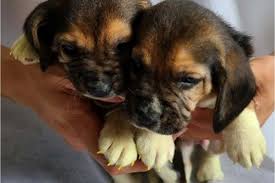Can dogs take Imodium for diarrhea? The Merck Veterinary Manual recommends a dose of 0.1-0.2 mg/kg [0.05-0.1 mg/lb]. For convenience, one 2 mg capsule or tablet of Imodium can be given per 50 pounds of body weight. Cut it in half for a dog that weighs around 25 pounds and always use the liquid form of Imodium for dogs under 20 pounds.
How long does it take for Imodium to work in dogs? It’s short-lived in the body and quickly adds in with the blood to treat your dog’s stomach. Usually, you will notice improvement within an hour or two. If you’re giving Imodium to your dog without consulting your vet, don’t continue the medication for more than 2 days.
What can you give a dog to stop diarrhea? A bland diet for 24 to 48 hours may help to resolve your pup’s issue. Plain-cooked white rice with a little chicken and some canned plain pumpkin (not pumpkin pie filling) may help to make your pup’s tummy feel better. Once your pooch feels better, gradually reintroduce their regular food.
What do vets give for diarrhea? Your veterinarian may recommend the oral administration of an intestinal protectant such as kaolin clay and pectin (KaoPectate™) or a suspension containing bismuth subsalicylate (PeptoBismol™).
Can dogs take Imodium for diarrhea? – Additional Questions
How do I firm up my dog’s stool?
If you have checked the feeding amount is correct, cut out treats and spaced the meals and your dog is still producing soft poo the addition of just a couple of tablespoons of cooked carrot, sweet potato or squash to their meal can work wonders in firming up their poo. It should be a pretty quick change too.
What stops diarrhea fast?
You can stop diarrhea fast with one of two different kinds of over-the-counter medication, Imodium (loperamide) or Kaopectate or Pepto-Bismol (bismuth subsalicylate).
What is the most common cause of diarrhea in dogs?
Eating garbage or spoiled food. Ingestion of foreign objects such as toys, bones, and fabric. Ingesting toxins or poisons. Viral infections such as parvovirus, distemper or coronavirus.
Can I give my dog Pepto-Bismol for diarrhea?
Pepto-Bismol Dosage For Dogs: The recommended dosage is 1 teaspoon for every 10 pounds, according to Dr. Klein. It can be offered to the dog every 6-to-8 hours, but if your dog still has diarrhea after a few doses, stop the medication and call your veterinarian.
Why is my dog’s poop runny and slimy?
Infection with gastrointestinal parasites (commonly called ‘worms’) often causes loose stools or diarrhea with mucus. Whipworm and roundworm are common culprits. Giardia and cryptosporidium are two microscopic parasites that commonly cause dog poop to be covered in mucus.
Should I starve my dog if he has diarrhea?
Should you starve them for a period of time? Firstly we would not suggest you starve them unless advised by your vet. This can often do more harm especially in puppies and geriatric dogs. The gut cells actually get their nutrition from the food they absorb, so starving can actually weaken the intestine wall.
Should I feed my dog if he has diarrhea?
Recommend withholding food for a short period of time to allow your dog’s gastrointestinal tract to rest and recover, followed by a few days of a bland diet, such as cooked chicken and rice. This is often beneficial when GI upset is due to eating a rich meal or a sudden diet change.
How long can a dog have diarrhea?
Diarrhea in dogs can occur suddenly and last as long as a day or two up to a few weeks or months. If your dog’s diarrhea persists for more than a day, dehydration can be a concern. Diarrhea that lasts longer can be an indication that your dog has an underlying health issue.
How long can a dog have diarrhea before going to vet?
If loose stool lasts more than two days, call the vet
“Many cases of diarrhea in dogs and cats are mild and self-limiting,” says Dr. Meredith Miller, associate clinical professor of small animal medicine.
Why has my dog had diarrhea for a week?
Common causes of diarrhea include dietary indiscretion such as getting into the garbage pail or eating people food that the dog is not accustomed to, abrupt dietary changes, medications especially antibiotics which tend to disrupt the gastric flora and infectious agents such as parvovirus, coronavirus, Salmonella, E.
